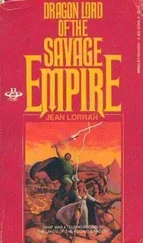Jean Lorrah - Empress Unborn
Здесь есть возможность читать онлайн «Jean Lorrah - Empress Unborn» весь текст электронной книги совершенно бесплатно (целиком полную версию без сокращений). В некоторых случаях можно слушать аудио, скачать через торрент в формате fb2 и присутствует краткое содержание. Жанр: Фэнтези, на английском языке. Описание произведения, (предисловие) а так же отзывы посетителей доступны на портале библиотеки ЛибКат.
- Название:Empress Unborn
- Автор:
- Жанр:
- Год:неизвестен
- ISBN:нет данных
- Рейтинг книги:5 / 5. Голосов: 1
-
Избранное:Добавить в избранное
- Отзывы:
-
Ваша оценка:
- 100
- 1
- 2
- 3
- 4
- 5
Empress Unborn: краткое содержание, описание и аннотация
Предлагаем к чтению аннотацию, описание, краткое содержание или предисловие (зависит от того, что написал сам автор книги «Empress Unborn»). Если вы не нашли необходимую информацию о книге — напишите в комментариях, мы постараемся отыскать её.
Empress Unborn — читать онлайн бесплатно полную книгу (весь текст) целиком
Ниже представлен текст книги, разбитый по страницам. Система сохранения места последней прочитанной страницы, позволяет с удобством читать онлайн бесплатно книгу «Empress Unborn», без необходимости каждый раз заново искать на чём Вы остановились. Поставьте закладку, и сможете в любой момент перейти на страницу, на которой закончили чтение.
Интервал:
Закладка:
Wicket put up a casually denying hand. “Oh-that’s just a trick Pyrrhus taught me, to fool Readers.” He winced. “Never thought to ask him how he knew what’d fool ‘em. But it’s just a bunch of nonsense to distract attention.”
“No, Wicket, I don’t mean your songs and rhymes and riddles,” Julia told him. “I mean the moment when you want that necklace to fall exactly in the girl’s line of vision. Then the nonsense stops. To a Reader, you become invisible. A Dark Moon Reader would miss it, unless he were focused specifically on you, and until four years ago few Readers in the Aventine Empire would’ve known what that moment’s blankness meant.”
Wicket was staring at his hands. “No. I can’t.”
“You can and you do,” Julia assured him. “Well test your talents now, and teach you to use them most effectively.”
Wicket’s eyes fixed on hers, wariness in their depths. “No!” he said. “Lady Julia, you must be wrong-but even if you’re right, it doesn’t matter. I’m not an Adept!”
“Wicket,” said Galerio, “don’t act as if it’s something bad. You’re not in the old Aventine Empire-nobody will kill you for it. You don’t have to go to their training sessions and get lectured about using your talents for the public good. But-”
“I said no’t” Wicket interrupted him. “You shut up about it, all of you. It’s not so! And if any of you says anything to Pyrrhus-well, you can just forget me helping you get out of your problems with Capero!”
With that, Wicket got up, made a futile attempt to-brush the dust from his clothes, and started toward the road back to Zendi.
The four young people stared after him. “Never saw anyone act like that when he found out he had a talent,” said Antonius.
“I think I understand,” said Julia, aware of people from the horse market running to see if they were hurt.
She climbed to her feet saying, “Let him go. And do as he says. Don’t tell anyone, not even your closest friends.”
At the hospital, Aradia was not surprised to find Pyrrhus awake, although she had not expected him to be up and dressed. The door was open, and she could see him standing by the bed, his attention on items laid out on it.
The plate on the bedside table was empty except for apple cores and the skeleton of a bunch of grapes.
Pyrrhus wore the same clothes in which he had been injured, which Aradia had paid no attention to at the time. Now she noticed that although his accent, short hair, and beardlessness showed his Aventine origins, Pyrrhus chose to dress in the savage style.
Wicket had called his friend “skinny.” Actually he was thin and wiry, and his dark gray clothing did nothing to make him appear larger. It was plain in cut, linen and wool of the highest quality, with fine black leather boots suited for riding but looking soft and comfortable enough for walking.
His tabard was wool, its only decoration a single line of discreet silver embroidery across the top.
Wondering if Pyrrhus should be on his feet, Aradia started to Read his physical condition as she neared the doorway-and Pyrrhus snatched his sword from the scabbard on the bed, whirled, and faced her with weapon at ready!
Aradia’s throat constricted at the idea of a Reader at the mercy of his physical senses; how painful it must be to have someone sneak up on him. She had not meant to; with her advancing pregnancy she was simply most comfortable in soft slippers that made no sound on the marble floors.
When he saw who it was, Pyrrhus saluted her with the weapon. “Lady Aradia. Come to see that I do not escape?”
“Not without a proper meal,” she replied, sending a mental call to the hospital kitchen. “Actually, I did not expect to find you awake.”
“Obviously neither did Wicket,” he said, replacing his sword in its scabbard. “Or has he gone?”
“Gone?”
“He does have all our money,” said Pyrrhus.
“Don’t you trust him?” Aradia asked.
“More than I ought to, I expect.” Leaving the sword on the bed, Pyrrhus put on a black leather belt with a square silver buckle and plain silver decoration along its length. Aradia noted that he had to buckle it two notches tighter than where the worn place in the leather indicated it was usually fastened.
“You need a few good meals under that belt,” said Aradia.
“Why should you be concerned about my health?” he challenged. “I’m a stranger to you.”
“The child you saved was a stranger to you ,” she countered.
Instead of answering, he turned and began plucking items off the bed and stowing them about his person.
Aradia sat down in a chair, bemused, to watch a dagger disappear into his left boot, a larger knife that she suspected was weighted for throwing into his right. What appeared to be a plain white linen kerchief did not move with normal lightness; it was obviously weighted with lead. Pyrrhus folded it to look quite ordinary, and tucked it into his tabard.
He put on leather bracelets, the kind gladiators wore to protect and support the vulnerable wristbones, but when he bent his hands forward as far as they would go, sharp blades sprang from them, across the backs of his hands. With a tight-lipped smile of satisfaction, he touched hidden catches, and the blades slid out of sight again.
But that was not all. Aradia’s amusement grew as she wondered whether the razor he tucked into his tabard, where there must be hidden pockets, was the same one he used on his face, or whether this one was merely another weapon. The man was a walking arsenal!
Several bodkins, of varying sizes, also went inside the tabard, along with braided leather thongs, a sling, a burning glass, a lodestone, and some objects whose purpose Aradia could not guess. Finally, Pyrrhus clipped another dagger, quite visibly, to his belt. All that was left on the bed was a bow, a quiver of arrows, and his sword.
For all the paraphernalia, no bulges showed in his outfit, nor did Pyrrhus move as if weighted down. He looked over at Aradia, tilting his head.to one side as if waiting for her to comment, and sat down on the bed.
She grinned at him. “Just what army do you expect to face single-handed?”
“Yours, possibly,” he retorted.
The attendant arrived with Pyrrhus’ meal. He glanced at Aradia, but accepted the tray and began to eat.
She noticed that, like Lenardo, despite his hunger he ate little meat.
Readers kept to a vegetarian diet, saying meat dulled their powers. Aradia often argued with Lenardo, insisting that he could improve his Adept powers if only he would eat more meat. He would counter that if she ate less, she would be a better Reader.
But no diet would enable Pyrrhus to Read again. Probably, like most people, he simply preferred foods he had grown up on. Aradia took the opportunity while Pyrrhus was eating to study him without enduring that piercing gaze.
Now that his burns had healed, his coloring was back to normal. Aradia noted that his eyes seemed darker than they actually were because his skin was very fair. Even sun-darkened, it was lighter than Lenardo’s olive tones, and the brown of his hair was in the medium range, not the dark brown to black more usual among Aventines. His eyelashes were long and thick, but lighter than his hair, the contrast with the brown eyes increasing the impression that they were mysteriously dark and deep.
Pyrrhus finished eating, set the tray on the bedside table, and took the wool of his tabard between thumb and forefinger. “How did you get the oil out of my clothing without ruining it?”
“Adept talents are useful for many purposes,” she replied.
He pondered that, then shrugged. “Why not? But you are not here to discuss laundry. Perhaps you haven’t noticed: I still can’t Read.”
Читать дальшеИнтервал:
Закладка:
Похожие книги на «Empress Unborn»
Представляем Вашему вниманию похожие книги на «Empress Unborn» списком для выбора. Мы отобрали схожую по названию и смыслу литературу в надежде предоставить читателям больше вариантов отыскать новые, интересные, ещё непрочитанные произведения.
Обсуждение, отзывы о книге «Empress Unborn» и просто собственные мнения читателей. Оставьте ваши комментарии, напишите, что Вы думаете о произведении, его смысле или главных героях. Укажите что конкретно понравилось, а что нет, и почему Вы так считаете.












